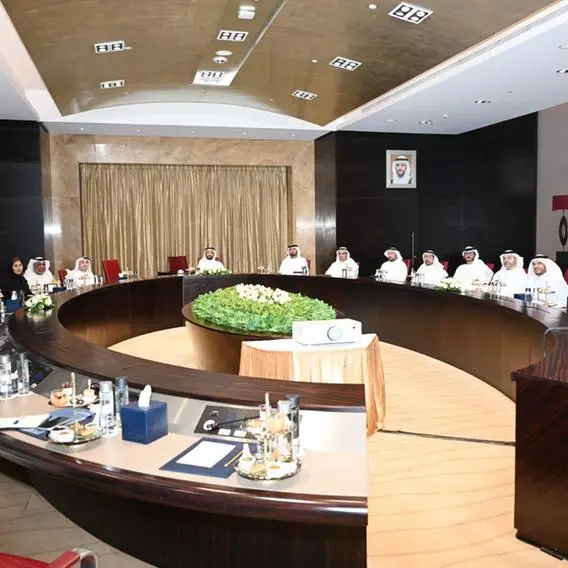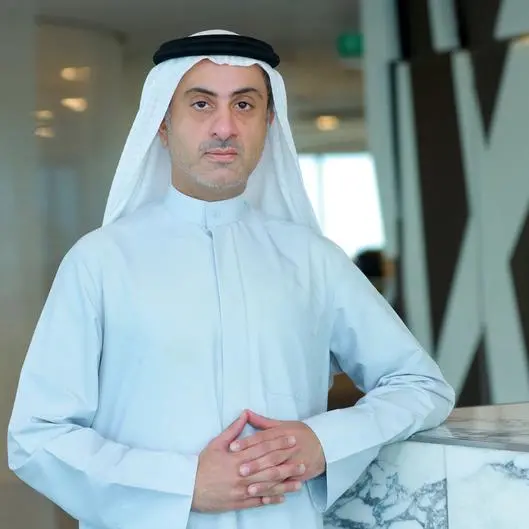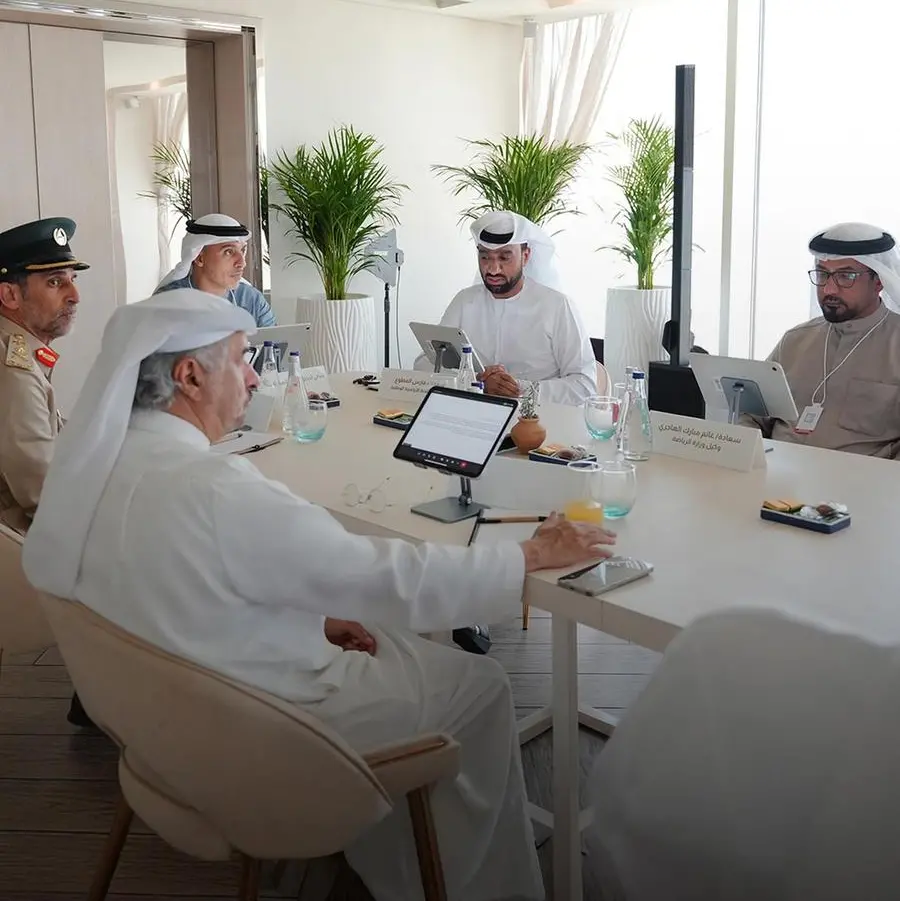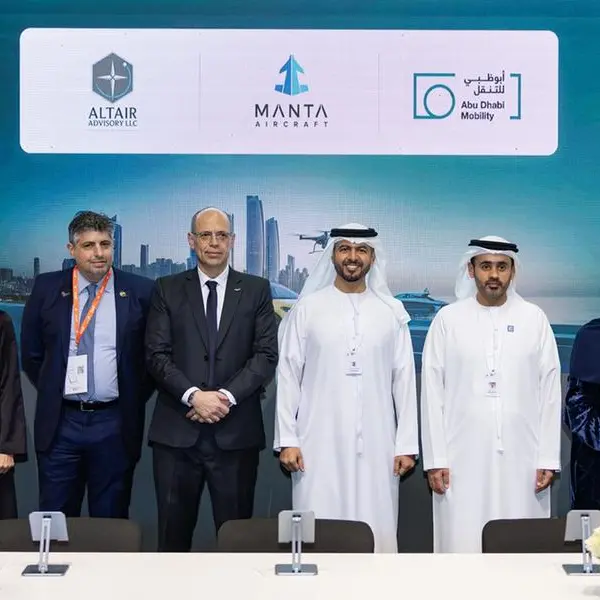PHOTO
- To Support National Food Security Strategy Objectives Achievement Efforts
- Saeed Al Bahri Al Ameri stresses: The Strategy is An Effective Step Towards Promoting Sustainability and Controlling FLW Effects
- "Together Blessings Last" Campaign Enhances Food Sustainability Efforts and Community Awareness of National Values to Preserve Blessings
Abu Dhabi: The Abu Dhabi Agriculture and Food Safety Authority (ADAFSA) has launched an integrated strategy to reduce FLW across the Emirate of Abu Dhabi. The strategy is aligned with the UAE National Food Loss and Waste Reduction Initiative "Ne’ma". ADAFSA also unveiled a public awareness campaign under the slogan "Together Blessings Last". The campaign aims to promote positive behaviour among all segments of society to reduce FLW.
This strategy is part of Plan Abu Dhabi to achieve a balanced and sustainable development. It is also within the framework of the approved foundational plan in the Emirate of Abu Dhabi. In addition, it supports efforts to achieve the goals of the UAE National Food Security Strategy, which aims to reduce FLW by 50% by 2030, in line with the UN Sustainable Development Goal on responsible production and consumption.
The strategy is based on five core pillars, from which numerous initiatives are launched to address FLW practices. It encourages the community to adopt positive behaviours, reduce food consumption and conserve our natural resources. The pillars include assessing the current situation, developing regular loss and waste measurement capabilities, setting clear policy directions and targets, and developing a legislative system to support the reduction of food waste. The strategy also emphasises community engagement and consumer behaviour change through an extensive awareness and education campaign aimed at creating a cultural shift in shopping and consumption practices and awareness of food loss.
It also aims to positively influence the market through proper planning of food supply, improving supply and demand management plans, increasing the efficiency of food use and improving recycling and treatment infrastructure.
Finally, the fifth pillar focuses on the commitment of the relevant food production and trade establishments through action plans to reduce food waste, promoting innovative technologies and using innovation and technology to minimise FLW.
The strategy aims to reaffirm the commitment to CSR principles and efficient management of national resources, in line with the UAE's national values. It also aims to use modern innovation and technology to reduce the estimated one-third of available food that is lost or wasted, and to mitigate the resulting economic losses.
It further aims to reduce the pressure on the natural and environmental resources required for food production, ensuring sustainability for future generations. It focuses on building and developing national capacities to continuously measure, monitor and assess FLW, encouraging positive behaviours to reduce waste, and increasing economic returns to farmers and food producers while making more food available for consumption.
The strategy includes many initiatives and programmes, foremost of which is the awareness campaign under the theme "Together Blessings Last" aimed at changing behaviour regarding food production and consumption from farm to table, and implementing training programmes for workers in food agricultural establishments. Additionally, it includes awareness campaigns targeting various segments of society, urging them to rationalise consumption and reduce waste to ensure food security sustainability, as good practices in handling food help to reduce food spoilage, which is one of the most important causes of FLW throughout the food chain.
His Excellency Saeed Al Bahri Al Ameri, Director General of ADAFSA, stressed that the launch of a strategy to reduce FLW at the level of the Emirate of Abu Dhabi is in line with the vision of His Highness Sheikh Mohamed bin Zayed Al Nahyan, President of the UAE (May God protect him), to consolidate the national values of the UAE. The strategy aims to increase efficiency in the management of national resources, achieve a sustainable balance between food consumption and production, and strengthen ADAFSA's corporate social responsibility, while using innovation and technology to minimise loss and waste.
He said: "In light of our firm commitment to achieving sustainable agricultural development and its related economic, social, and environmental goals, we announce the launch of an integrated strategy to reduce loss and waste in the context of Plan Abu Dhabi, and within the framework of the approved foundational plan in the Emirate of Abu Dhabi. This strategy is part of our strategic plan, which enjoys direct support from His Highness Sheikh Mansour bin Zayed Al Nahyan, Vice President of the UAE, Deputy Prime Minister, Chairman of the Presidential Court, and Chairman of the Board of Directors of the Abu Dhabi Agriculture and Food Safety Authority". This reflects His Highness's firm commitment to strengthening the food security system and achieving the objectives of the UAE's strategy to be one of the best countries in the world in terms of sustainability and resource conservation, in addition to achieving harmony between the strategy to reduce loss and waste and Plan Abu Dhabi, which is based on the concept of comprehensive and sustainable development.
His Excellency added that the strategy to reduce loss and waste at the level of the Emirate of Abu Dhabi includes a comprehensive set of procedures and initiatives that target all aspects of the food chain, from production to distribution and consumption. It will be an effective step towards enhancing sustainability and controlling the effects of FLW.
"We are committed to achieving the goals of this strategy through a variety of initiatives and programmes, including awareness campaigns and training for workers in agricultural and food businesses. Community awareness campaigns under the theme 'Together Blessings Last' aim to promote positive and sustainable food consumption behaviours and reduce waste. We are confident that this strategy will effectively contribute to achieving food security, reducing the environmental and economic impact of food loss, and realising a more sustainable and efficient food future". He further stated.
ADAFSA DG urged all stakeholders in the public and private sectors, as well as all members of society, to interact positively and participate in the implementation of the Strategy's initiatives and programmes to ensure the reduction of FLW and to achieve food sustainability for future generations.




















